Ybor City Blues is the third book in the Three Snowbirds series. Three snowbirds in the Roaring Twenties blaze a trail between opportunists, gangsters, and dead bodies in the Sunshine State.
0 Comments
Spicer’s wit and cleverness shine and leave you wondering what he will serve up next for your reading pleasure.
About the Author
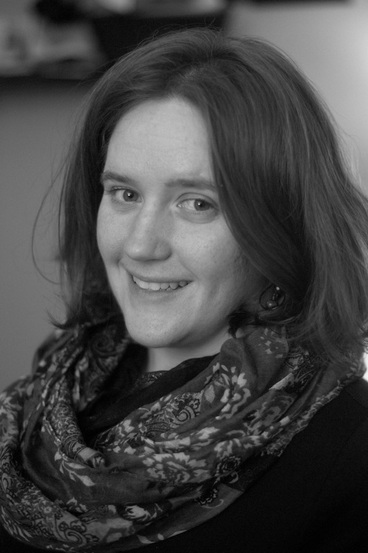 Cari Dubiel is a librarian and writer in Northeast Ohio. She serves as Library Liaison to the National board of Sisters in Crime. Her fiction and essays appear around the Web, and she is the co-host of The ABC Book Reviews podcast. Find Cari at www.caridubiel.com and www.abcbookreview.com. Part of the reason I found Cari's story, "Life Sentence", especially striking was due to its sensory qualities, especially scent. I felt like I was really in Victorian London while reading the tale, because I've often suspected the city stunk more than mentioned in the average cozy. How did you come up with the idea for your story in History and Mystery, Oh My? The germ of the story came at our local drive-in hot dog place. I was watching an older couple sitting in a car across from us. There was an eerie synchrony to everything they did: ordering, eating, paying the check. I wondered what it would be like to be married for that long, and what would happen if one of them died. Then, I started wondering what else could happen in that scenario, and what other conflicts could arise if I put that couple into Victorian London. I hope they didn’t notice me watching them! Do you have a favorite historical period you enjoy reading or writing about? My husband can watch the History Channel for hours, but I tend to get bored with straight history. I am more interested in context. How were people different in different eras? What were their personal challenges? With those questions, I can immerse myself in any historical period. I love English settings as well, hence my interest in my story’s setting. Do you have some special education that helps you write historical fiction, or do you deal with history in your profession? I’m a librarian, and in 2010, I spent the year writing the Centennial keepsake book for my library. I spent a lot of time searching through primary sources and working with the library’s Centennial committee. That led me to start writing historical mystery plays for the library as well, and we’ve performed three of them so far. Now I manage the computer lab, so I don’t have as much time for reference librarianship, but I try to keep my skills as sharp as possible. We have to find the right balance between honoring the past and trying to predict the future, while helping our patrons navigate through a constantly shifting present. What are you working on now? I am primarily writing short stories right now. One of my latest works features Violet, my protagonist for this story, again. I also have a few contemporary mysteries and science fiction shorts in the works. Okay, so you're an author. What do you enjoy reading? Like many librarians, I read widely. Mysteries, of course – all kinds. My favorite are puzzle thrillers with lots of twists and turns. I also enjoy science fiction and fantasy, urban fantasy, YA, women’s fiction, the occasional romance, literary fiction, and nonfiction. So, pretty much anything. 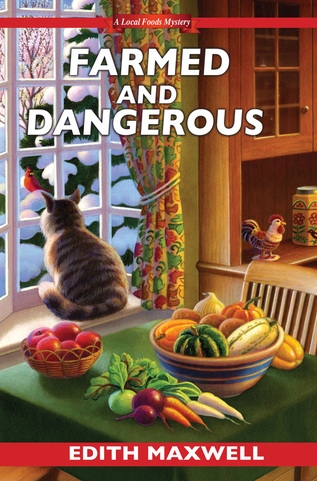 Edith Maxwell writes the Lauren Rousseau mysteries under the pseudonym Tace Baker, in which Quaker linguistics professor Lauren Rousseau solves small-town murders (Barking Rain Press). The second book in the series, Bluffing is Murder, released in November, 2014. Edith holds a doctorate in linguistics and is a long-time member of Amesbury Friends Meeting. When did you know you wanted to become a writer? I've been writing my whole life. Short fiction as a child, then journalism, academic articles, more journalism, and technical writing in the software industry, and now mysteries. Writing fiction makes me the happiest. How did you pick the genre/setting/era you (usually) write in? I love reading traditional mysteries, so it made sense to try my hand at writing them. Three of my series are set north of Boston where I live, and one is set in southern Indiana near where I earned a PhD long ago. Three (not the same three) are contemporary mysteries, two are cozies, and the historical is an amateur sleuth traditional. I chose 1888 to start that series when I read an article in our local newspaper about a fire that burned down much of the world-renowned carriage industry in the town of Amesbury, Massachusetts, where I live. I decided for the first book in the series that my sleuth, Quaker midwife Rose Carroll, would solve the (fictional) mystery of who set the fire and a couple of murders, too. John Greenleaf Whittier was alive at that time, there was a thriving mill industry, and it was an era of great change, with electricity and plumbing coming along, germ theory becoming known and practiced, and women gaining more independence. It was also not that long after the Civil War, and Amesbury was a stop on the Underground Railroad and Quakers were instrumental in that work. It seemed like a perfect era to set stories in. You write mysteries. Does your inspiration begin with the crime, the detective, the setting, or some other place? My characters lead me along, but sometimes a story or a book will be sparked by the crime, and the setting is always important. It's all intertwined. I write about an organic farm, so that sometimes governs what kinds of crimes are committed, and in the Country Store Mysteries, the southern feel of Brown County, Indiana, definitely affects the characters. How did you come up with the idea for your story in History and Mystery, Oh My? I love Rose, my protagonist in the Carriagetown Mysteries series, and her quirky independent friend, postmistress Bertie Winslow, so I wanted to use them in a short story. In the late 1800s, police stayed out of domestic violence cases and, as Rose is a midwife, she sees sometimes sees bruises and marks on her clients' bodies. And then, because it's fiction, I added a fun twist at the end. Did you encounter any obstacles in researching the setting? I've done a lot of research the period surrounding 1888, but I also live in the town where I set these stories and I attend Quaker Meeting in the same meetinghouse where Rose worshipped alongside Whittier. I love walking the streets of my historic city, studying the maps, reading about that era. I haven't yet been able to determine whether modest houses in Rose's neighborhood had indoor plumbing in 1888, but I'm working on it. Do you have some special education that helps you write historical fiction, or do you deal with history in your profession? Neither. I'm an amateur historian. What are you working on now? I'm writing my second Country Store mystery, out from Kensington Publishing in June 2016, tentatively titled Grilled for Murder. Okay, so you're an author. What do you enjoy reading? Mysteries, of course! Mostly cozies and primarily stories written by women with a female protagonist. But I'm also reading Ruth Goodman's How to be a Victorian: A Dawn-to-Dusk Guide to Victorian Life in preparation for writing the second Carriagetown Mystery, which is next up on my schedule. It's a fascinating look into all the details of personal life, from teeth brushing to hair pomades to cooking to underwear. And which of your books comes out next? Farmed and Dangerous, the third Local Foods mystery, will be out in late May, and it's available for preorder at Amazon and Barnes & Noble. Also, my short story, "A Fire in Carriagetown," featuring Rose's niece Faith Baily has been reissued as an ebook on Amazon and Barnes & Noble. 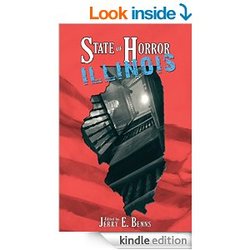 DJ Tyrer is the person behind Atlantean Publishing and has been widely published in anthologies and magazines in the UK, USA and elsewhere, most recently in Steampunk Cthulhu (Chaosium), Tales of the Dark Arts (Hazardous Press), and State of Horror: Illinois (Charon Coin Press), as well as in Strangely Funny II and Undead of Winter (both with our press). He also has a strong interest in The King In Yellow and is involved in The Yellow Site wikia. How did you come up with the idea for your story in History and Horror, Oh My? I had the core idea some time ago while watching the 2011 BBC adaptation of Great Expectations. It sat around unused, but always agitating to be used, until the call for submissions to History and Mystery, Oh My! and I had the idea of combining it with what could have been the hook for a more traditional ghost story. Did you encounter any obstacles in researching the setting? No. All the elements involved were once I'd previously done research on, so I was able to draw upon that. It helps to write about things that interest you - that way the research is mostly done and never seems like work! Do you have a favorite historical period you enjoy reading or writing about? I love learning about all periods of history and like to vary the eras and locations I write about. However, I do tend to gravitate particularly towards ancient and Biblical History, Celtic History (ancient to modern), Arthurian research, the Wars of the Roses, the Tudors, the Victorian and Edwardian periods and the Roaring Twenties. Historical linguistics is a field of particular interest to me. Do you have some special education that helps you write historical fiction, or do you deal with history in your profession? I have a BA in History and Welsh History from Aberystwyth. Sadly, I didn't get to pursue it further, but I have written a few historical articles. What are you working on now? I'm currently working on several short stories aimed at forthcoming anthologies, a couple of booklets that I'll releasing through my own press, Atlantean Publishing, and a pitch for a new project from April Moon Books. In the longer term, I need to make time to work on a couple of novel ideas (one of which is an alternate police procedural and the other steampunk) and plan to release some short story anthologies. On the history side of things, I have a longstanding project involving Biblical history that I would like to actually bring to fruition. Okay, so you're an author. What do you enjoy reading? I like to read widely and will have a go at anything, fiction or non-fiction that takes my attention, but I do like James Patterson and Clive Cussler for escapism, and, because I write a lot of related fiction, I frequently reread the stories of HP Lovecraft, Robert W. Chambers, Clark Ashton Smith and Arthur Machen. The Brontes are an obsession of mine, so I reread their work and books about them frequently. Currently, for research, I am reading books about Napoleon III and the Prussian siege of Paris. I was first drawn to Georgia Ruth's story, “Dead Man Hanging”, by the location. My father's family has deep roots in western North Carolina, especially Asheville (which gets a mention). As I read it, though, I also became impressed with her ability to create a sense of the era and the people who lived then and there. I could really picture Main Street in Marion, NC, in 1916. Why did you choose a historical genre for a mystery that could be put into any setting? I now live in the foothills of North Carolina where my neighbors describe location based on the history of a building. As some of these folks trace their roots back to Wales in 1100 AD, the glimpses of past lives have given my life a new perspective. I am comfortable hanging out with ghosts. How did you come up with the idea for “Dead Man Hanging?” First I was overwhelmed by the devastation of the flood of 1916. Then I researched oral accounts of its effect on local lives in Marion of McDowell County, and I saw photographs of sections of railroad buried in mudslides. During that time I attended a neighborhood gathering where ghost stories were told, and I learned that the junior high school was haunted. My curiosity also picked up a rumor of a hanging decades ago in the downtown Eagle Hotel where today the current coffee shop owner often hears strange noises. My reaction was why? What causes so much stress? But it wasn’t until a year later that these experiences came together when I put pen to paper. I am an organic writer and start without an outline. Somehow Daniel Kanipe became part of my story, probably because I weekly pass by and admire his beautiful historic home. He was a survivor of the Little Big Horn, but I put words in his mouth and gave him another life as a detective in this story. Did you encounter any obstacles in researching the setting? The haunted junior high was built on the site of a real orphanage, where I imagined a private graveyard. In all probability, everyone was buried in the city cemetery on the next hill. After I wrote the story, I drove through town to test my possibility of “what if?” I drove the streets now surrounding the school, and there on a knoll overlooking the junior high I glimpsed a few broken tombstones in a tangle of weeds. I didn’t knock at the door of the old house nearby because the grave was part of my mystery not the history. To myself I proved it could have happened. Are you working on other historical stories? My blog at http://www.georgiaruthwrites.us is almost always about the fascinating history of my neighbors. On other projects, I am looking for a home for my fiction story “A Simple Life” about descendants of a survivor of a legendary Indian attack on Fort Pleasant Gardens. In March, I have a speculative story “The Mountain Top” coming out in a Sisters in Crime anthology Fish or Cut Bait. History that hasn’t happened yet! I predict that stories in History and Mystery, Oh My! will be enjoyed by readers of all genres. I am pleased to be included in this anthology. 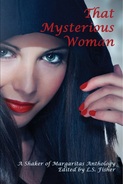 Read "Dead Man Hanging" and see Georgia's work for yourself in History and Mystery, Oh My!, now available in print, ebook, and Kindle formats from online retailers. You can also see more of Georgia Ruth's work now in That Mysterious Woman, the fourth mystery anthology in the Shaker of Margaritas series. 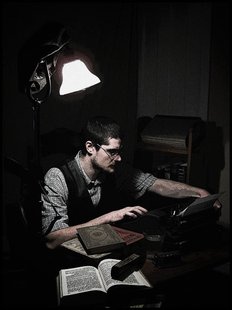 Joe Mogel, a born and raised New Englander, inherited his dry sense of humor from his equally dry family. Being home schooled, he had the time and opportunity to develop many hobbies, including painting, martial arts and writing. Going to college for engineering (“I'm not sure what I was thinking at the time. I like seeing the light of day on a regular basis,” he says), he rediscovered his interest in writing. Now, having published ten stories though seven different publishing houses and having had his work included on several websites, Joe is considering turning to writing as a full time career. When did you know you wanted to become a writer? ~When I was a child I imagined that authors were the, often globe trotting, intellectual bad-asses I had seen all my life in BBC murder mysteries. Needless to say, I wanted to be one. How did you pick the genre/setting/era you (usually) write in? ~I don't have a 'usual' genre/setting/era. I write as my imagination takes me, and it seldom takes me to the exact same place twice. You write mysteries. Does your inspiration begin with the crime, the detective, the setting, or some other place? ~That depends on the story. Sometimes I start with the villain, because who's cooler than the villain? Unless it's the ice cold, man of iron detective. The crime is usually derived from either of those two characters, since all crime comes from a character's mind, I need the character first. How did you come up with the idea for your story in History and Horror, Oh My? ~I was watching the Claude Rains version of 'The Invisible Man' and thought to myself that a blind person wouldn't be fooled by an invisible fellow. Once I made the blind man a detective, I had my story. Did you encounter any obstacles in researching the setting? ~Not really, I'm already quite familiar with late Victorian/early Edwardian England and knew what needed to be present to make the piece feel real. Do you have a favorite historical period you enjoy reading or writing about? ~With regard to reading, no. With regard to writing, no. I'm quite open to any form of antique awesomeness. Do you have some special education that helps you write historical fiction, or do you deal with history in your profession? ~Just a great deal of non-fiction reading. The more you read about history, the easier it becomes to understand what the feel/emotion/culture would be and the easier it becomes to think and write about an era. What are you working on now? ~A novel. Admittedly, it's a modern setting, but the structure and theme are based on ancient Greek tragedies. So it's a bit of a challenge. Okay, so you're an author. What do you enjoy reading? ~The classics are my favorite. Greek, Roman, Medieval, anything before the turn of the 20th century. They're a mix of Literature, history, anthropology, and art all rolled into one. I learn so much from the classics every time I read them. Learn more about Joe on his website at: JoeMogelAuthor.yolasite.com . And read "Death in the Library" for yourself in History and Mystery, Oh My! now available in print, ebook, and Kindle formats from online retailers. |
Welcome!
Mystery and Horror, LLC, is an indie press interested in what the name suggests. Contact us at: [email protected]
Archives
October 2023
Categories
All
|
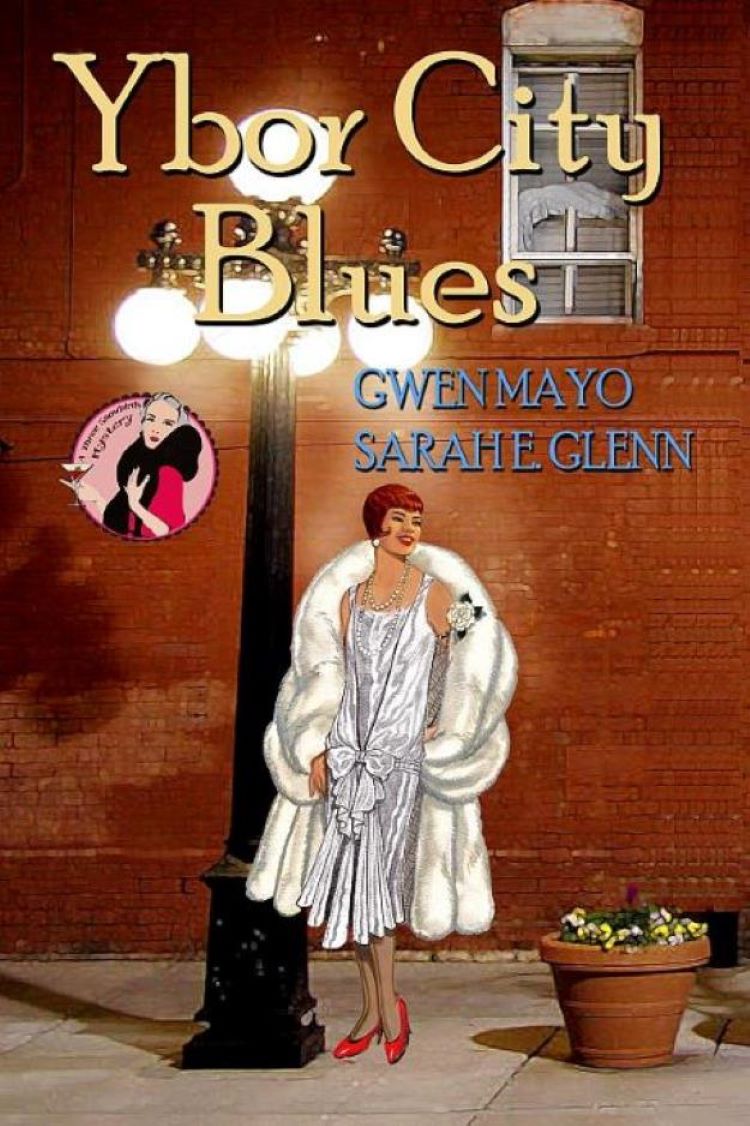
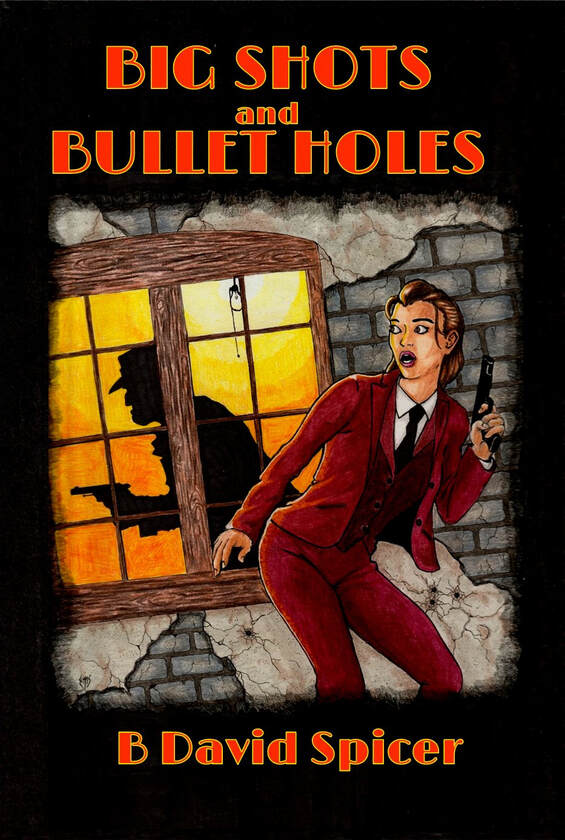
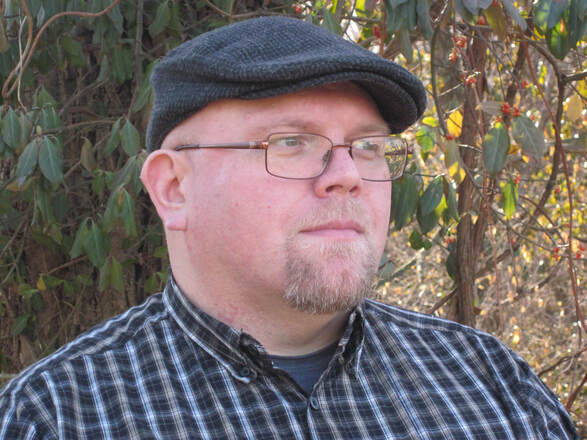
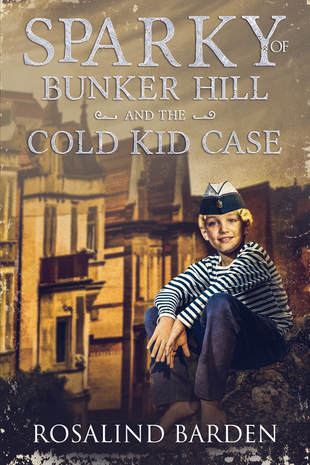
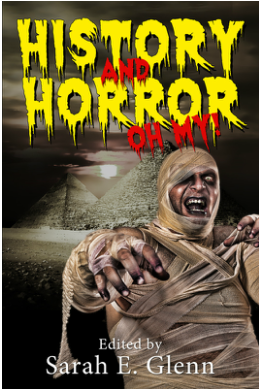
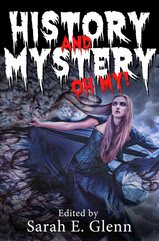
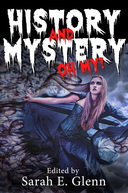
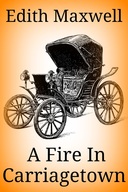
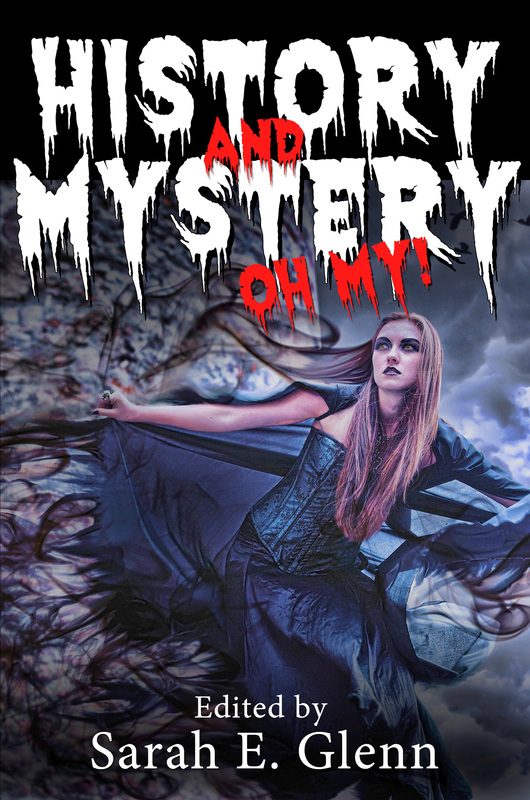
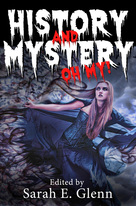
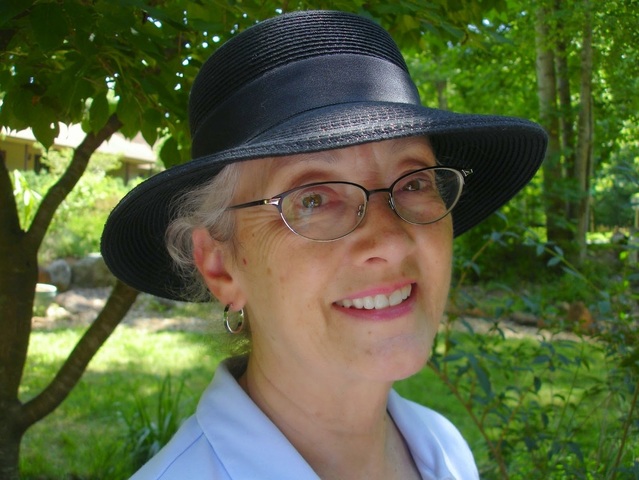
 RSS Feed
RSS Feed